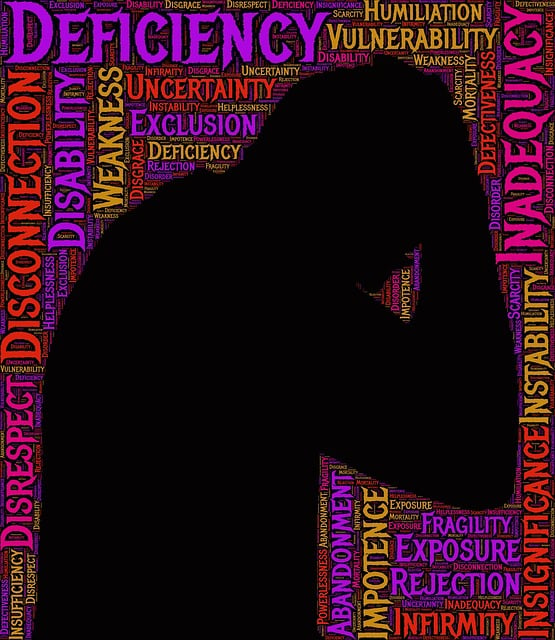Depression impacts millions, but recognizing signs early via Denver Relationship Issues Therapy (DRIT) offers hope. DRIT combines mindfulness, positive thinking, and tailored interventions to holistically address biological, psychological, and social factors contributing to depression. This approach fosters resilience, enhances communication, and provides sensitive care for diverse backgrounds. Preventative measures like exercise, mindfulness, balanced diets, and adequate sleep are vital. Seeking professional help from DRIT equips individuals with emotional management tools while building support networks and practicing self-care rituals strengthen coping abilities. Remember, proactive mental health habits and seeking assistance when needed are key to combating depression and promoting well-being.
Depression is a prevalent condition affecting millions, yet its prevention remains a vital aspect of mental health care. This article explores three key strategies to combat this challenge. We begin by highlighting the crucial signs and symptoms to recognize early on. Then, we delve into Denver Relationship Issues Therapy, a holistic approach proven effective in preventing and managing depression. Finally, we discuss lifestyle changes and coping mechanisms, offering practical tools for long-term well-being.
- Recognizing the Signs and Symptoms of Depression
- Denver Relationship Issues Therapy: A Holistic Approach to Prevention
- Lifestyle Changes and Coping Mechanisms for Long-Term Well-Being
Recognizing the Signs and Symptoms of Depression

Recognizing the signs and symptoms of depression is a crucial first step toward healing. Common indicators include persistent feelings of sadness, loss of interest in activities once enjoyed, changes in appetite or sleep patterns, fatigue, difficulty concentrating, and thoughts of death or suicide. If you or someone close to you is experiencing these symptoms, it’s essential to reach out for support. In Denver, there are numerous resources available, including specialized Relationship Issues Therapy services designed to address the unique challenges individuals face in their personal and professional lives.
Seeking help early can make a significant difference in managing depression effectively. Denver Relationship Issues Therapy often incorporates practices like mindfulness meditation and positive thinking techniques as part of its approach, fostering Mental Health Awareness and promoting resilience against depressive episodes. By acknowledging the signs and taking proactive steps toward healing, individuals can reclaim their well-being and enjoy a higher quality of life.
Denver Relationship Issues Therapy: A Holistic Approach to Prevention

Depression often arises from complex interactions between biological, psychological, and social factors, making prevention a multifaceted endeavor. Denver Relationship Issues Therapy (DRIT) offers a holistic approach, addressing these interconnected aspects through tailored interventions. This therapeutic model recognizes that emotional well-being is deeply tied to our relationships and social environment.
DRIT incorporates effective communication strategies and empathy-building techniques as core components of its prevention framework. By enhancing the cultural competency of healthcare providers through specialized training, DRIT ensures that individuals from diverse backgrounds receive culturally sensitive care. This personalized approach fosters open dialogue, helping clients navigate relationship challenges while cultivating resilience against depressive symptoms.
Lifestyle Changes and Coping Mechanisms for Long-Term Well-Being

Adopting a proactive approach to mental health is key to preventing depression and fostering long-term well-being. Simple lifestyle changes can significantly impact an individual’s overall mood and resilience. Regular exercise, for instance, releases endorphins that boost mood and reduce stress. Incorporating mindfulness practices, such as meditation or yoga, helps individuals manage their thoughts and emotions effectively. Additionally, maintaining a balanced diet and ensuring adequate sleep are essential for stable mental health. These habits create a foundation for coping with life’s challenges, reducing the risk of depressive episodes.
Seeking professional support is another vital aspect of prevention. Denver Relationship Issues Therapy, for example, offers specialized services to address underlying emotional issues. Coping mechanisms learned during therapy can equip individuals with tools to navigate stressful situations and regulate their emotions healthily. Moreover, engaging in social activities, building a strong support network, and practicing self-care rituals contribute to a resilient mindset. By combining these strategies, individuals can enhance their ability to cope with life’s ups and downs, potentially preventing depression before it takes hold. Remember, seeking help is a sign of strength, and many resources are available, including Stress Management Workshops Organization, Mental Health Policy Analysis and Advocacy groups, and Mental Illness Stigma Reduction Efforts, all working towards a more supportive society.
Depression is a serious condition, but prevention is achievable through a multi-faceted approach. Recognizing early signs, adopting healthy lifestyle changes, and seeking professional support like Denver Relationship Issues Therapy can significantly reduce risk factors. By integrating holistic practices with coping mechanisms, individuals can foster long-term well-being and build resilience against depressive episodes. Remember, proactive measures are key to maintaining mental health and enhancing the quality of life.













